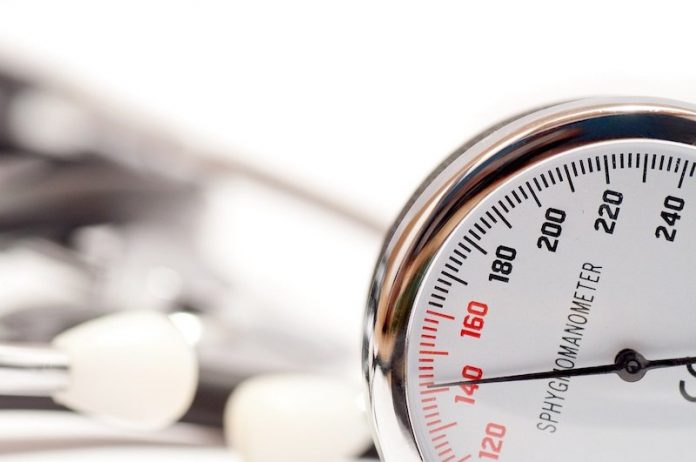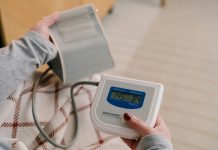
In a new statement from the American Heart Association, researchers suggest that doctors should consider prescribing medication for people with slightly elevated blood pressure if healthy lifestyle changes can reduce the condition.
A previous recommendation for patients with stage 1 hypertension and a low (<10%) risk for having a heart attack or stroke is to first treat with healthy lifestyle changes and then repeat the blood pressure check in six months.
For patients with stage 1 hypertension and a high (>10%) risk for heart attack or stroke, the guidelines recommend anti-hypertensive drugs in addition to a healthy lifestyle.
It suggests clinicians should consider drugs for patients with low risk if the blood pressure goals (<130/80 mm Hg) are not met after six months of healthy lifestyle changes.
This new guidance would apply to nearly 10% of American adults with high blood pressure.
Many patients who have stage 1 high blood pressure are adults under the age of 40.
The team says that people with blood pressure lower than 130/80 mm Hg have fewer markers of cardiovascular risk like elevated coronary calcium, enlargement of the heart, or buildup of fatty deposits called atherosclerosis in arteries of the neck.
There is strong evidence that treating high blood pressure saves lives by reducing the risks for heart attack and stroke.
Healthy lifestyle changes to lower blood pressure include achieving ideal body weight, exercising, limiting dietary sodium, enhancing potassium intake, and following the Dietary Approaches to Stop Hypertension (DASH) diet.
In addition, patients should be recommended to limit alcohol and not smoke. These remain the cornerstone of cardiovascular disease prevention.
If after six months with lifestyle changes, blood measure does not improve, clinicians should consider adding medications to control blood pressure.
That’s an important message for patients to hear as well because they should check their blood pressure regularly to monitor progress.
If they don’t achieve average daily systolic blood pressure of less than 130 mm Hg, it’s probably time to initiate a conversation with their doctor about practical next steps, which may include adding medication, to manage their blood pressure.
If you care about blood pressure, please read studies about common juice that could help reduce high blood pressure, and common blood pressure drugs that may harm your heart health.
For more information about health, please see recent studies about program that could strongly improve blood pressure, cholesterol control, and results showing this nutrient from plant food may strongly lower high blood pressure.
The study is published in Hypertension. One author of the study is Daniel W. Jones, M.D., FAHA.
Copyright © 2022 Knowridge Science Report. All rights reserved.



